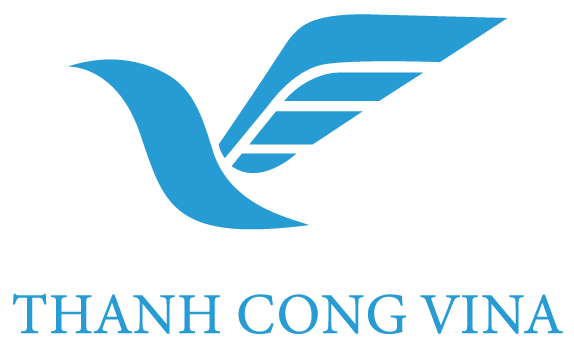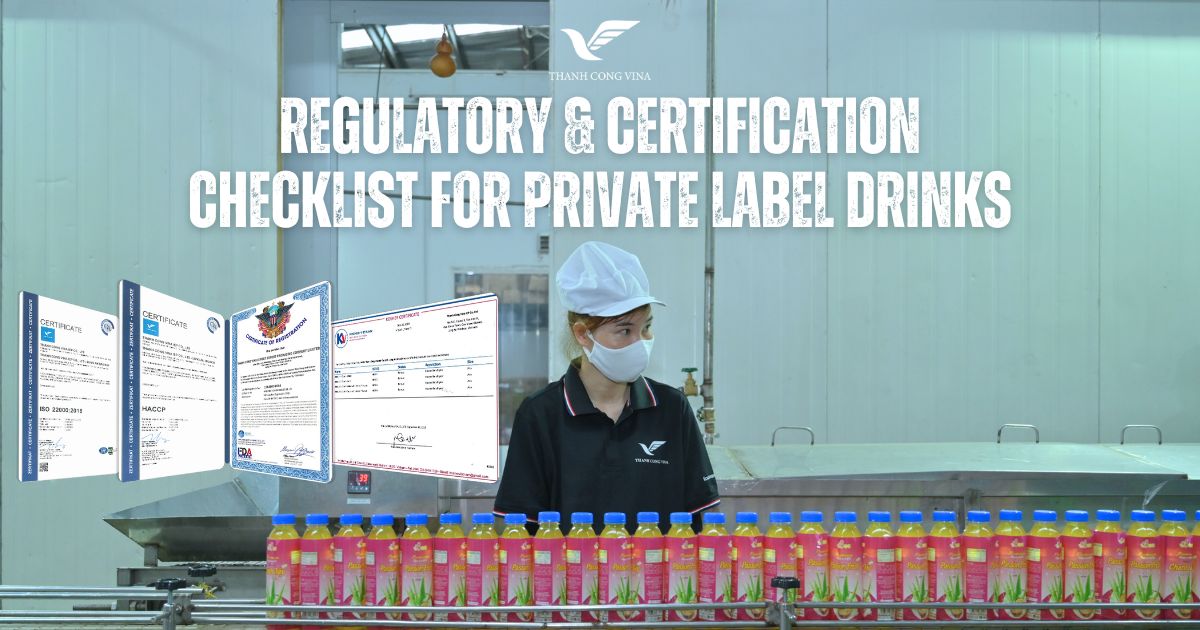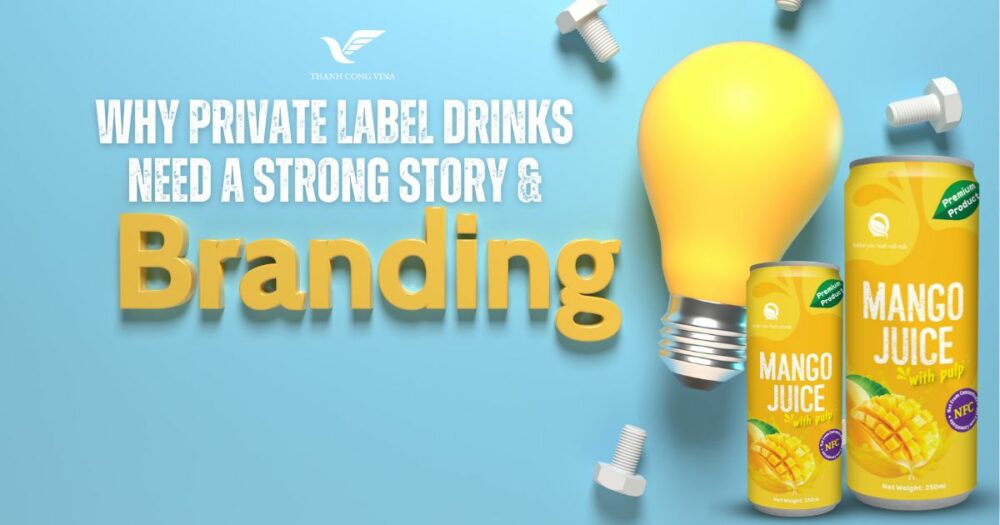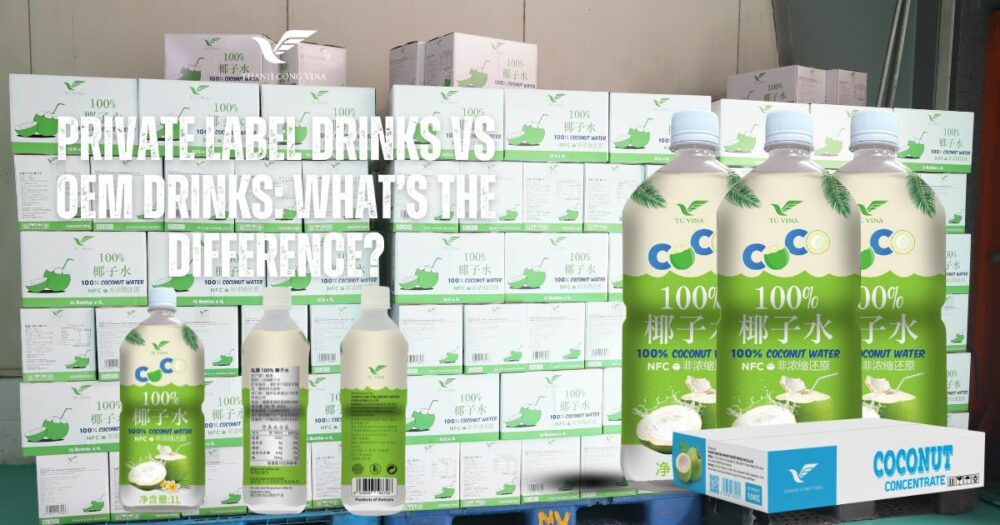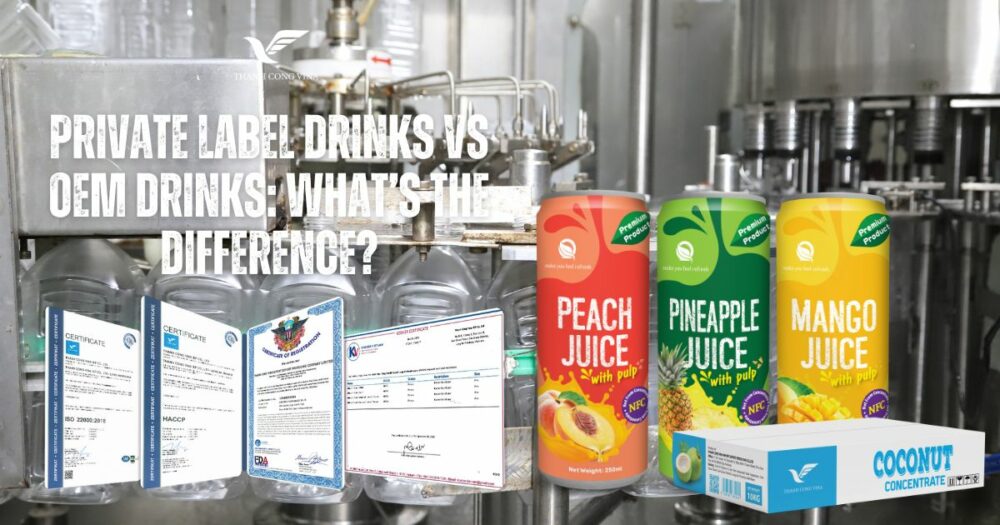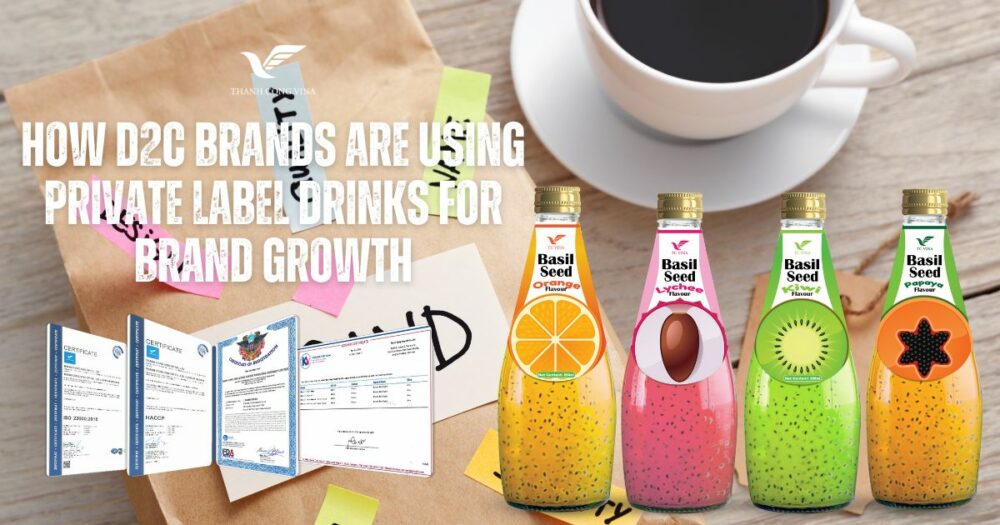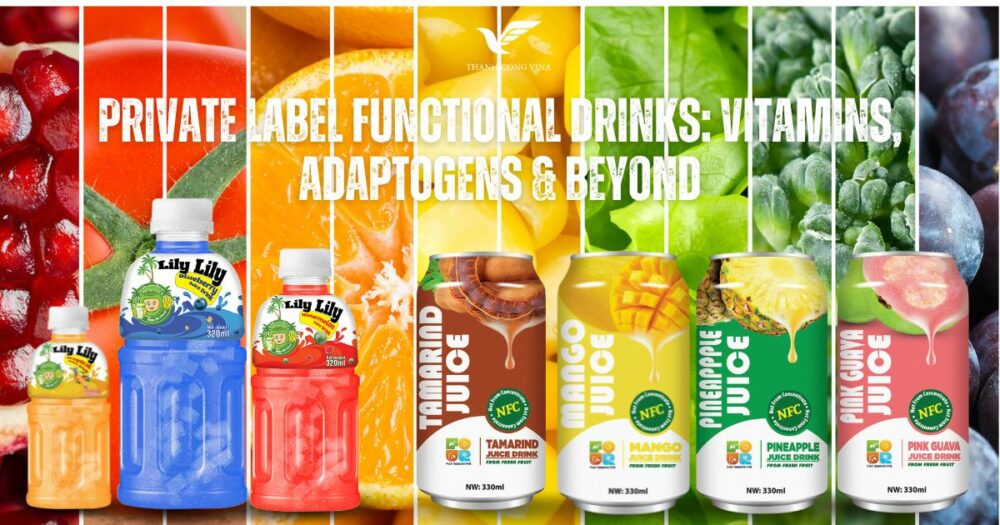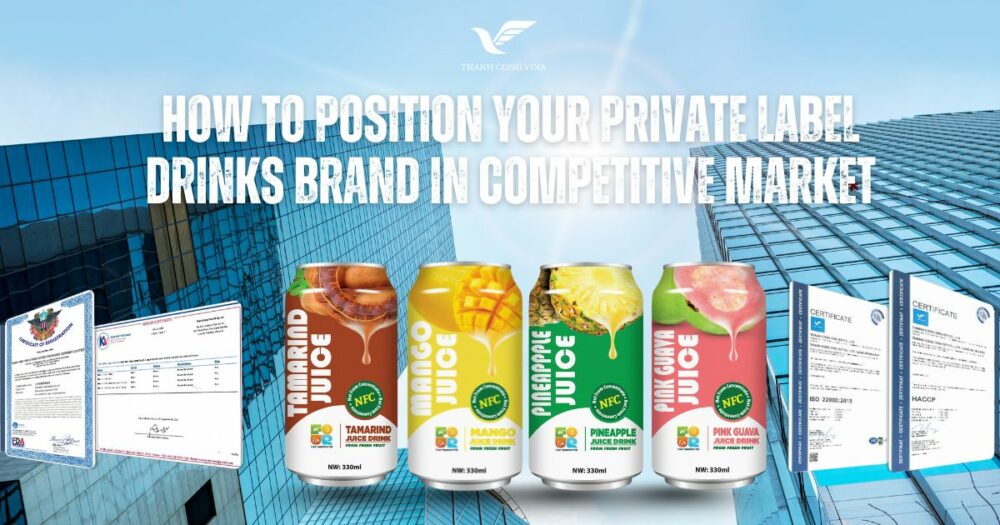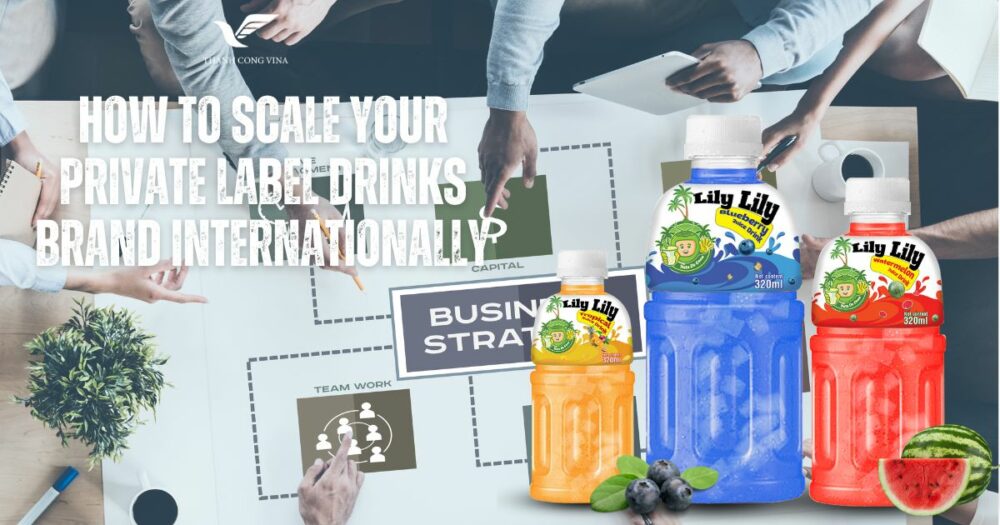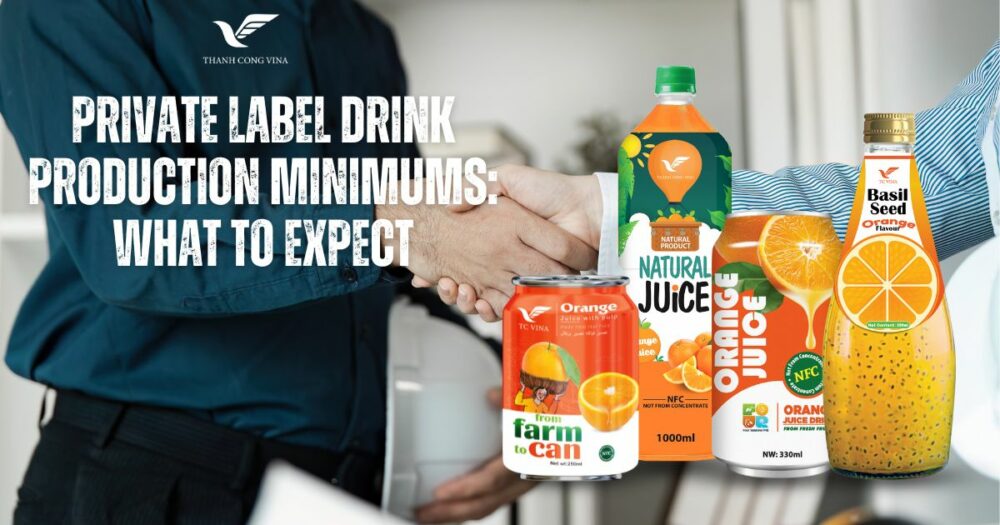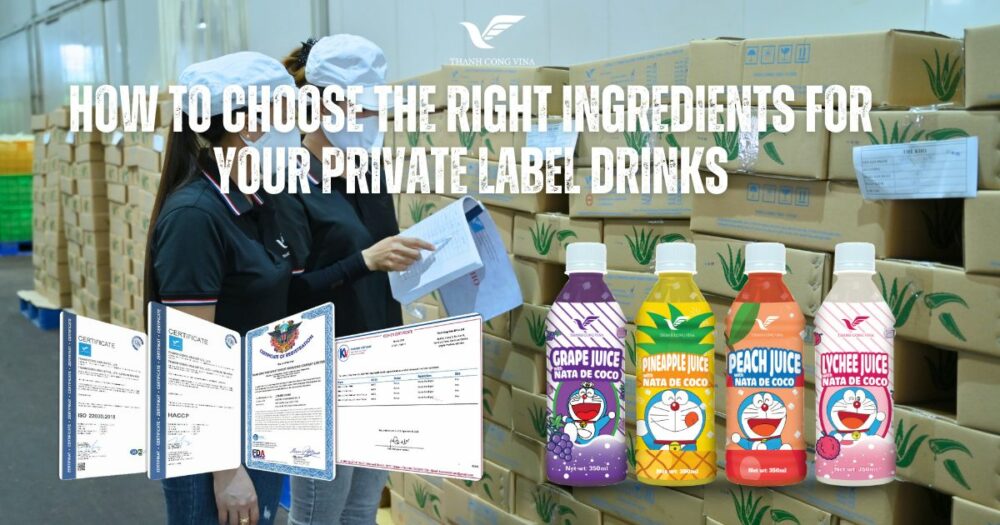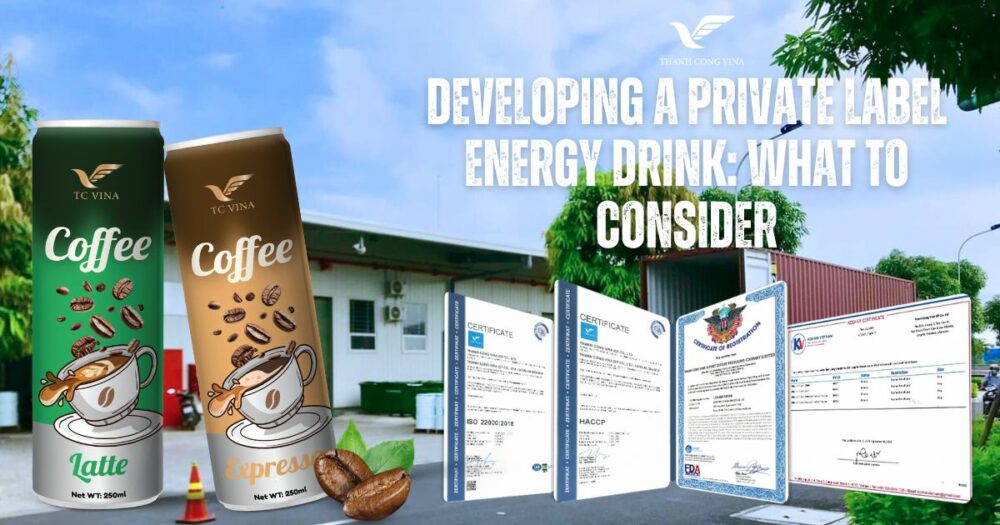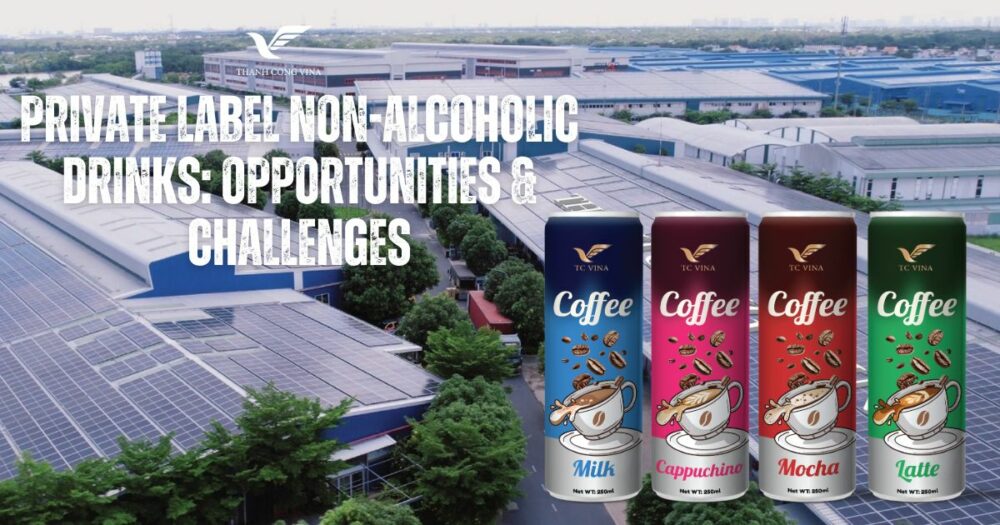In today’s fast-growing beverage market, private label drinks are transforming how brands, retailers, and manufacturers collaborate. Whether you’re launching a refreshing aloe vera drink, an energy beverage, or a natural juice line, ensuring regulatory compliance and proper certification is critical for safety, credibility, and global expansion.
Each market—whether in the U.S., Europe, or Asia—has unique standards that can affect everything from labeling and formulation to production and export.
This guide offers a comprehensive overview of the essential certifications, testing, and quality control measures every private label drink brand must understand before entering the market.
From food safety frameworks like HACCP and ISO to consumer protection laws and eco-friendly packaging rules, we’ll walk through each step of compliance. By following this checklist, your beverage line will not only meet international standards but also gain a competitive edge in the global beverage industry.
1. Understanding Regulatory Compliance for Private Label Drinks

Understanding Regulatory Compliance for Private Label Drinks
Before a private label drinks reaches store shelves, it must comply with a series of regulations that guarantee product safety, accurate labeling, and consumer transparency. These rules vary depending on the country of production and the target market.
The Role of Regulatory Bodies
Agencies like the U.S. Food and Drug Administration (FDA), European Food Safety Authority (EFSA), and Vietnam Food Administration (VFA) play central roles in approving beverage ingredients, verifying nutrition facts, and overseeing import/export requirements. In ASEAN countries, the harmonized food standards (ASEAN Common Food Control Requirements) also influence formulation and labeling policies.
Why Compliance Matters
Compliance prevents costly recalls, penalties, and brand damage. Beyond legality, adhering to these rules builds trust among consumers who expect transparency and safety. For private label drinks, where brand loyalty is still developing, trust and credibility are essential for long-term growth.
Core Areas of Beverage Regulation
-
Ingredient approval: Ensuring all components meet national and international food safety standards.
-
Label accuracy: Proper declaration of sugar, allergens, caffeine, and preservatives.
-
Production hygiene: Facilities must maintain strict sanitation, pest control, and water quality systems.
-
Traceability: Each batch must be traceable from raw materials to final shipment.
2. Essential Certifications for Private Label Drinks

Essential Certifications for Private Label Drinks
Certifications validate the safety, quality, and ethical standards behind your beverages. For private label manufacturers, these credentials enhance market reputation and enable exports to high-standard regions.
HACCP (Hazard Analysis and Critical Control Points)
HACCP certification is the foundation of any food and drink safety system. It identifies potential hazards during production—such as microbial contamination or improper storage—and implements control procedures to mitigate them.
ISO 22000: Food Safety Management
ISO 22000 integrates HACCP principles into a comprehensive food management system. It ensures consistent quality, continuous improvement, and international compliance, especially important for brands exporting to multiple regions.
GMP (Good Manufacturing Practices)
GMP certification ensures all beverages are produced under hygienic conditions using standardized procedures. It covers everything from staff training to machinery calibration, packaging, and storage.
HALAL & KOSHER Certification
These certifications are crucial for exporting beverages to Islamic and Jewish markets. They confirm that all ingredients and processes align with religious dietary requirements.
FDA & CE Mark Approvals
For U.S. and EU markets, FDA registration and CE compliance ensure beverages meet public health and safety expectations. Manufacturers seeking entry to these markets should collaborate with an experienced OEM beverage producer familiar with these standards.
3. Labeling and Packaging Regulations
Proper labeling is not only a legal requirement but also a key part of consumer communication and brand transparency.
Mandatory Label Information
Each label must include:
-
Product name and net content
-
Ingredient list in descending order
-
Nutritional facts per serving
-
Allergen and additive warnings
-
Manufacturer/importer information
-
Expiry or best-before date
-
Storage and serving instructions
Country-Specific Labeling Laws
Different regions have unique requirements. For example:
-
EU: Requires clear allergen identification and multilingual labeling.
-
USA: The Nutrition Facts panel must follow FDA formatting rules.
-
Vietnam & ASEAN: Labels must use approved local language and follow specific font-size rules for readability.
Sustainable Packaging Standards
Eco-conscious packaging—such as recyclable PET bottles, biodegradable labels, and low-carbon logistics—is increasingly part of regulatory systems. Adopting sustainability measures not only meets government mandates but also attracts environmentally aware consumers.
4. Quality Control and Testing Requirements
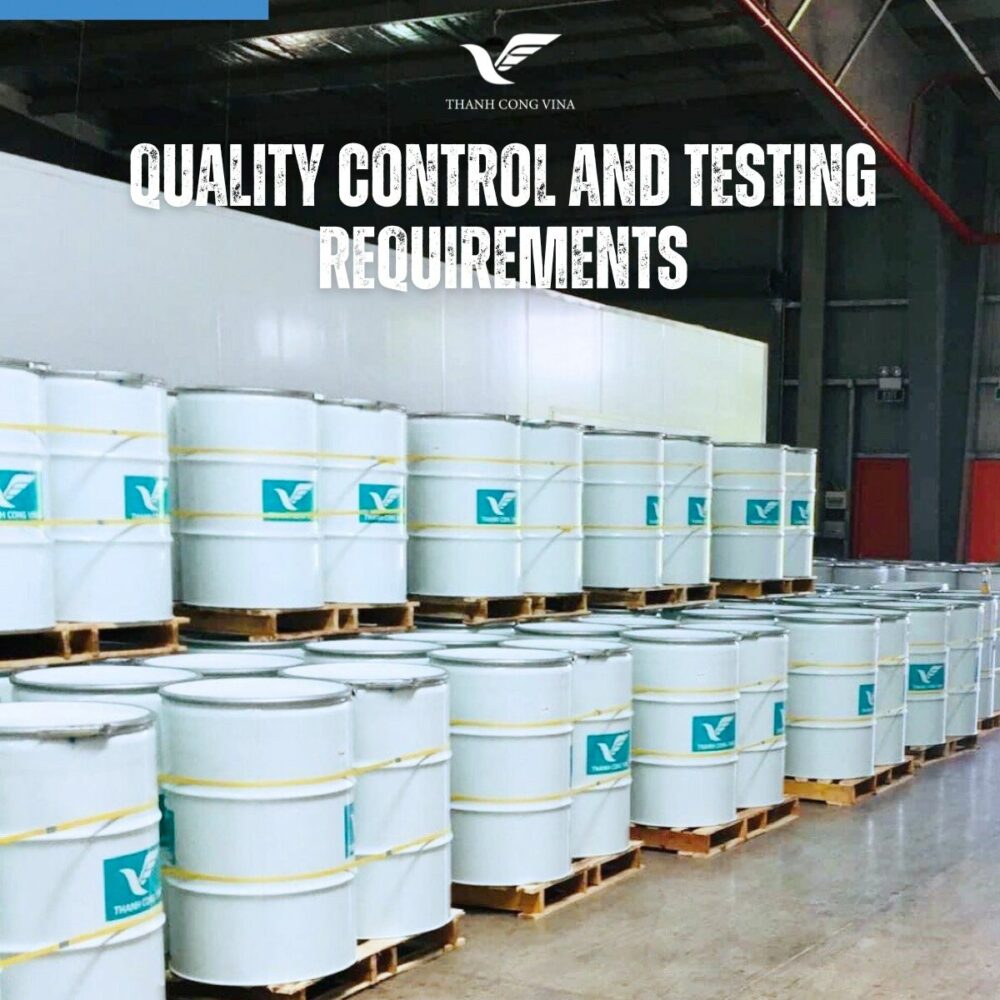
Quality Control and Testing Requirements
To maintain high standards and regulatory approval, every private label drink manufacturer must implement rigorous testing and inspection systems.
Raw Material Testing
Each ingredient, from water to flavoring, must undergo microbiological and chemical analysis to ensure it meets safety benchmarks. Testing for heavy metals, pesticides, and pathogens is standard.
In-Process Quality Checks
Regular inspections during blending, filling, and packaging stages prevent contamination and maintain consistency in flavor, color, and texture.
Finished Product Testing
Before market release, the final product must pass stability tests, pH analysis, and shelf-life assessments.
Additional export markets may require third-party lab verification before approval.
Supplier Audits
Leading OEM beverage manufacturers perform annual audits of ingredient suppliers to confirm that their production standards align with HACCP, ISO, and GMP protocols.
5. International Export and Documentation Standards
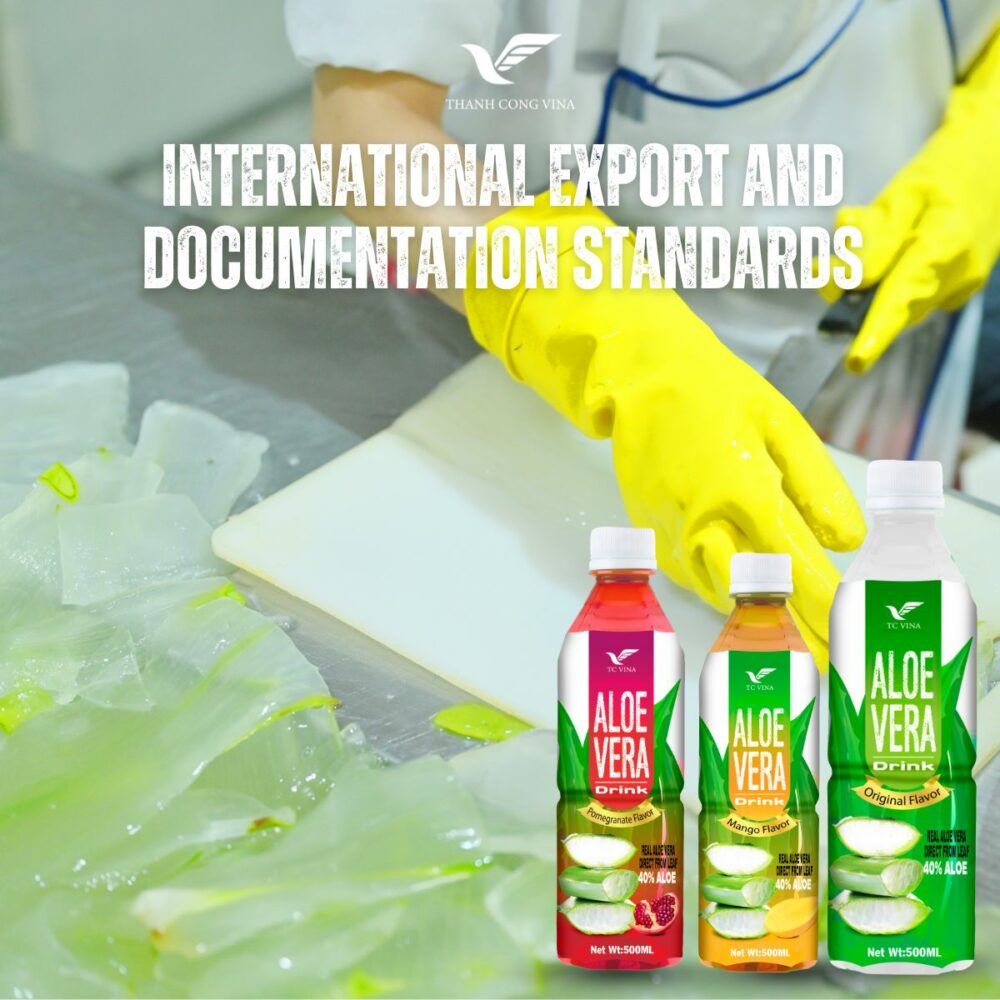
International Export and Documentation Standards
Exporting private label drinks requires meticulous documentation to ensure smooth customs clearance and global compliance.
Key Export Documents
-
Certificate of Analysis (COA)
-
Health and Free Sale Certificates
-
Ingredient and allergen declarations
-
MSDS (Material Safety Data Sheet)
-
Shipping and export declarations
Trade Agreements and Compliance
Manufacturers exporting to major markets benefit from Free Trade Agreements (FTAs) such as CPTPP and EVFTA, which reduce tariffs and streamline food safety alignment between countries.
OEM producers must maintain consistency across production runs to meet both origin and destination country requirements.
6. Choosing the Right Certified Private Label Partner
Finding a manufacturing partner that meets all these certifications is crucial to maintaining your brand’s credibility.
Checklist for Partner Selection
-
HACCP and ISO-certified facilities
-
Proven track record in international exports
-
In-house R&D for product customization
-
Transparent audit and documentation process
Long-Term Value of Certified Manufacturing
Partnering with a certified OEM beverage manufacturer reduces compliance risks and enhances consumer confidence, especially in competitive markets like health drinks, juices, and functional beverages.
Conclusion
Regulatory compliance and certification form the backbone of a successful private label beverage strategy. From HACCP and ISO to GMP and HALAL, these systems guarantee the safety, consistency, and quality modern consumers demand. As the private label drinks industry expands globally, maintaining full compliance will distinguish reliable brands from short-term competitors.
For businesses seeking a trusted and fully certified OEM beverage partner, TCVina stands out with its world-class manufacturing standards and export expertise. With certifications across HACCP, ISO, HALAL, and FDA compliance, Thanh Cong Vina delivers consistent quality and reliability to global clients while supporting innovative beverage development and sustainable production practices.
